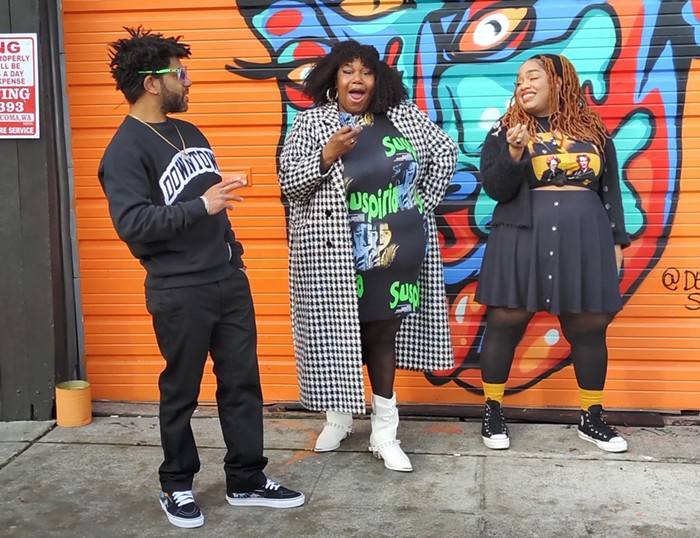Hempfest, Seattle's pioneering pot protest festival, is fighting for its future. After 26 years of sticking up for weed-law reform, the festival is facing mounting costs and shrinking incomes. This year's festival will still happen August 18 to 20, but it will feature fewer stages, and future fests could be even smaller.
"We've axed just about anything we can ax this year, and there's not a whole lot of fat to trim," said Vivian McPeak, president of the organization that puts on the festival. "What's going to happen is we are going to shrink before we go away. It would just be a shame if Seattle lost this event."
The three-day waterfront rally at Myrtle Edwards Park costs $800,000 to run, and Hempfest is restricted in how it can raise money. Charging for admission is a no-go. Hempfest is, legally speaking, a free-speech event, and if it became a commercial event, the city could more easily refuse its event permits.
Last year, the festival raised an average of 46 cents in donations per attendee. McPeak said if that were more like $1, or even $5, the festival would have no problem surviving. So the festival is looking to you, dear toker, to help out.
"I don't care how bad the economy is, people can afford $5 for the weekend," McPeak said.
Legalization made weed a lot cheaper (I save at least $5 almost every time I buy pot), so it seems like a no-brainer to kick a few of those dollars back to the OGs of pot reform. Except there's a complication: How much credit does Hempfest deserve for legalization? Hempfest did not come out in favor of I-502, the 2012 initiative that legalized weed in Washington State. The festival officially took a neutral stance, and McPeak was actually one of the leaders of a group opposing the measure, citing the concerns of medical users about the DUI provision in the legalization law.
McPeak said I-502 has been very beneficial, but he still thinks the law's DUI provision—and its standard for proving someone is impaired—is troublesome. "A lot of us were very critical of I-502," he said, but today he acknowledges that "it has done tremendous good stuff."
According to McPeak, Hempfest officially took a neutral position on the initiative because a poll of their membership showed a 50/50 split on whether to support the law. "We wanted both sides to be able to come and speak from our stages, and ultimately to let the public decide."
The public, of course, disagreed with McPeak and decided that I-502 was the right way to legalize weed. A friend who attended that year's festival told me he remembers the rampant anti-I-502 messaging being off-putting. Nevertheless, even if Hempfest didn't fully support the legislation that ultimately legalized weed in our state, their work for more than 26 years establishing the groundwork and context for legalization deserves to be recognized.
When Hempfest first started in 1991, weed legalization was more unpopular than Donald Trump's presidency, with Gallup reporting less than 25 percent of Americans favored legalization.
It wasn't just unpopular to advocate for weed—it was still illegal. A Seattle Times article from September of 1995, the first year the festival took place at its current home in Myrtle Edwards Park, describes about 50 police officers and an undercover narcotics unit writing "a steady stream of tickets" to Hempfest attendees. Each possession ticket cost $250, and three people were arrested on larger narcotics charges that year. Remember, the state didn't recognize pot's medicinal value until 1998, and the city didn't make enforcing pot possession its lowest policing priority until 2003.
"I think it's indisputable that Hempfest tilled the soil for decades in advance of I-502, and even I-75, which made [pot possession] the lowest policing priority in Seattle," McPeak said.
Hempfest's power doesn't just come from what its speakers are saying—or which laws it is or is not advocating for. It's powerful just because it exists. It is a yearly reminder to the people of the city and even the world that the lies propagated about pot are just that: lies. Where are the sex-craved lunatics the DEA warned us about? The violent thieves Uncle Sam said pot would create?
"You can't deny 100,000 enthusiasts year after year," McPeak said. "We've said for a long time that we are a demonstration against the laws, but we are also a demonstration of what the cannabis culture is capable of."
Now that Hempfest is facing an uncertain future, we'll find out if the cannabis culture is capable of supporting the country's oldest pot festival.
















